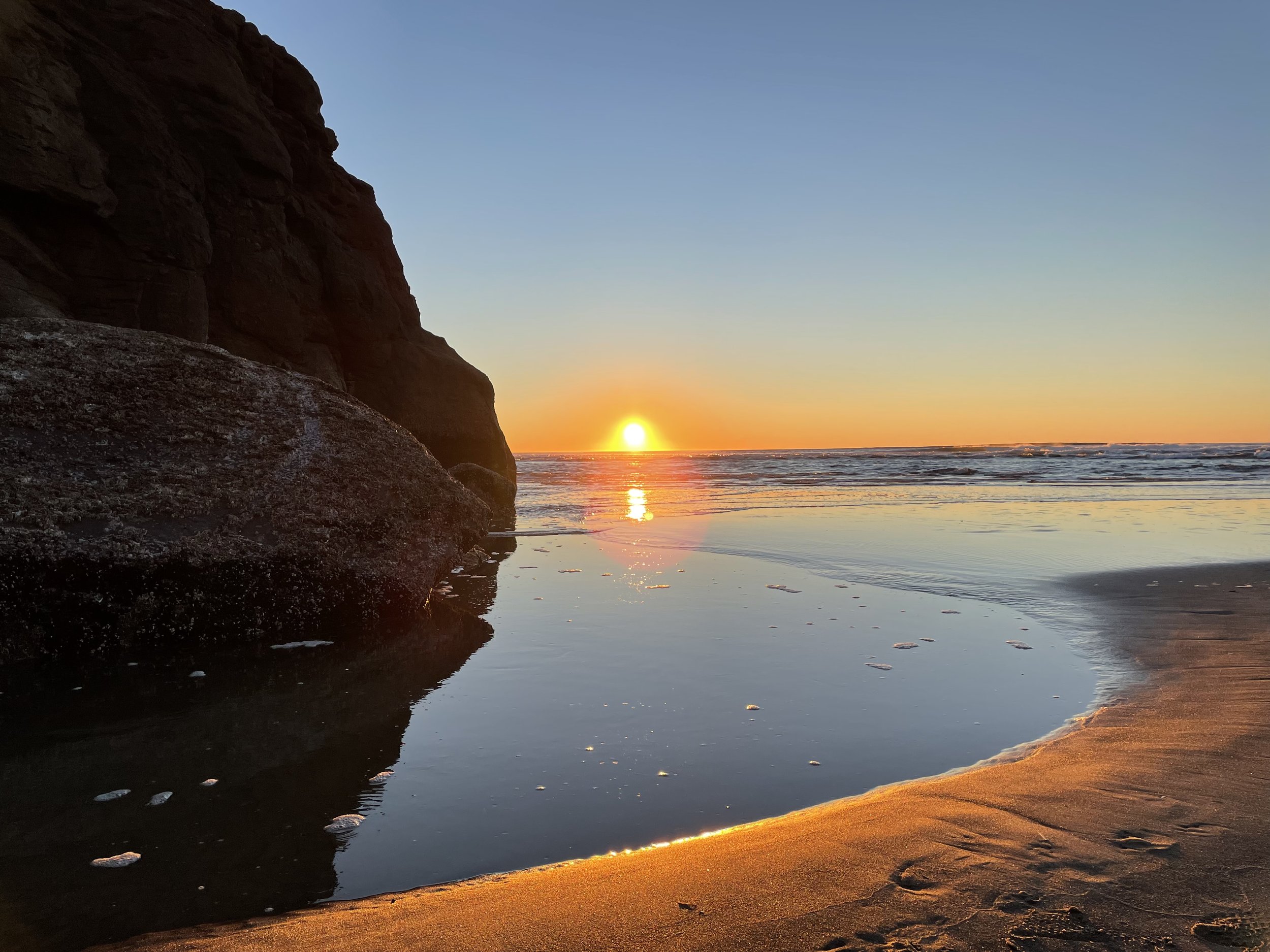My formal death education began in 2005. After encountering an open grave in a Portland-area cemetery, I began to wonder about our choices. Inside lay an empty concrete liner, awaiting a burial casket with all the accouterments. I still remember looking across the the vast, headstone-laden hillside and imagining a city of concrete, metals and oozing embalming fluids just feet below the well-watered and immaculate lawn. As someone who deeply cares for the health of the planet, but also enjoys cemeteries, this shook me deeply.
As a result, I began working with my graduate program to integrate death and dying into my final project. Much of my research focused on state and local regulations, choices and accessibility to options. The conversations and interviews I conducted with people about their final death and dying wishes moved me deeply and helped me realize that we were sorely missing these conversations in our everyday lives. In many cases, those I interviewed were unaware of their options, or that alternatives to commonly accepted ways were legal and available. Shortly after I graduated, my research helped a local family hold a home funeral and backyard burial in Yamhill County, Oregon.
Since then, I’ve embraced a conscious, lifelong relationship with death and dying, including trainings, conversations, volunteering, self-directed learning and of course, more research. So much has changed in twenty years. New laws, new creative options, natural burial grounds and a growing openness to communicating about death. Although it took a global pandemic for us to become more comfortable across our country’s demographic strata, I’m grateful for this cultural shift in awareness.
I never expected to feel so alive as a result of this work.
It has become crystal clear that individuals, families and communities benefit from an awareness and understanding of End-of-Life and After Death Care pathways open to them. I’ve seen again and again how the courage to turn toward the inevitable and lean into it opens up connections beyond what we may expect.
That’s why I have dedicated a large part of my life to providing others with the opportunity to develop a healthy relationship with death, and at the very least be encouraged to discuss what relationship they want without stigmatization.
We can’t predict the future or be sure our plans will be useful when that time comes. We can, however, predict that we will all face death and loss in our lifetimes. If we learn to embrace that truth, then we have the potential to strengthen our families and communities while we’re alive, living more fully as a result.
With this strength, we may be better prepared to align our values and choices when death moves through our lives, and leaves us forever transformed.
“Death work is life work.”

Education & Services
Adult Caregiver Grief Support
Volunteer facilitator at The Dougy Center in Portland, Oregon from 2022-2024. I facilitated conversations between adult surviving caregivers of the children being served after the death of a family member.
Death Cafes, Book Clubs & Death Over Dinners
Death Over Dinners, book clubs and Death Cafe-style conversations for members of my extended community since 2019.
Death Education
Community offerings at sliding-scale on a seasonal or yearly basis. Follow along in 2023-24 with Death and Dying in Four Seasons, aka “Death Club” or “DnD”. I’ll be facilitating a new cohort starting in Fall 2025

A Thank You to My Teachers & Those Who Prepared a Path
Death Education is a lifelong commitment that continues to evolve, and I want to acknowledge the teachers and organizations that provided me a foundation for exploring this work in more depth.
My Ancestors who remind me that the old ways of knowing still live on through me and keep me brave and grounded
Leadership in Ecology, Culture & Learning graduate work @PSU where I focused my culminating project on the accessibility and legality of alternative death care options for Oregonians
JerriGrace Lyon’s Final Passages In-Home Funeral Training https://finalpassages.org
Donna Belk’s Beyond Hospice Training & her collaborative work with Holly Stevens, Kateyanne Unullissi, and Lee Webster. https://donnabelkinfo.com
Holly Pruett’s expansive work in Portland, Oregon, including Death Cafes, the DeathOK Conference and Community Death Education work. She also collaborated to create Oregonfunerals.org
INELDA End of Life Doula Training https://inelda.org
The Dougy Center, where I was a volunteer facilitator for an Adult Caregiver Group https://www.dougy.org
Many writers, activists, and caregivers too numerous to mention. I’ll share booklists, podcasts and resources moving forward. Feel free to ask!
The flora and fauna of this planet, in all their living complexity and decaying impermanence. You save my life, again and again.
“Reflecting on my own inevitable mortality reminds me to check in about whether my life choices align with my values. Can I learn to live without resentment and regret? Am I living how I’d like to be remembered? Will my body feed the earth when I’m gone?”




